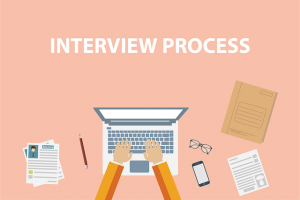
Q: The government recently launched a national remote work strategy, Making Remote Work. One of the things that stood out for me was the ‘right to disconnect’. I believe most of us are struggling to do that. Some employers are not helping by demanding and expecting us to be ‘on’ all the time. This mentality, government plan or not, is going to take some time to change. How can we start moving in the right direction, and be efficient while doing our job (BC, email).
A: Remote work is going to stay with us, one way or another. While many people are happy with it, the challenges you refer to are very real and affect us in many ways, writes Ines Gonzalez, Career Coach, Sli Nua Careers.
The government is defining the ‘right to disconnect’ as a worker’s right to be able to disengage from work and refrain from engaging in work-related electronic communications, such as emails or other messages, during non-work hours and holidays.
So, while the world slowly adapts to this new way of working, we should focus on what we can control and setting boundaries is a good way to start to claim our right to disconnect. Here is my quick guide:
Set expectations
It’s a good idea to set boundaries in terms of your availability. Share details with colleagues to manage expectations around response times.
But this is a two-way street. You need to provide flexibility to others working with you. One of my colleagues had this message on his mail for a while. Life has got very busy. I don’t expect immediate replies so don’t feel under pressure.
Reading that gives you immediate peace, which has to be a good thing these days.
Know what to avoid
First, avoid extending the working day to get more done. And second, avoid extending even more into your weekends. Be clear that you are offline on weekends.
If you are struggling with this, reflect on why. The ‘always on’ mentality may lead to anxiety, stress and burnout.
Meetings that work
Speak up when meetings don’t work for you. Make it clear how long you have for a call and see if a 30-minute meeting can be done in 15.
Not everything requires a Zoom meeting, you know. A phone call where you walk around the house can be a good idea.
My office, my rules
Think about what you did before moving to a home office? What kind of breaks did you have? Maybe coffee or a chat? Try to replicate those in this new environment.
Time block your day and have a start and end time. Do not forget to schedule time for yourself.
Pack and go
Not everybody has the luxury of a home office. Create a space for work you can leave at the end of the day. Pack all your things and leave, even if they are just on a box or shelf: that signals that your work day is over.
Remember to commute
Mimic a commute, maybe a cycle or a walk before or after work. Other things that will send a signal to your brain that you are working or not are your clothes. Change your Zoom jumper when you are done at work.
If you want to read the full government plan, here is the link: http://bit.ly/work-remote-irl.
Ines Gonzalez is a Career Coach with Sli Nua Careers.
Make a booking HERE for online Interview Training and Mock Interviews.






